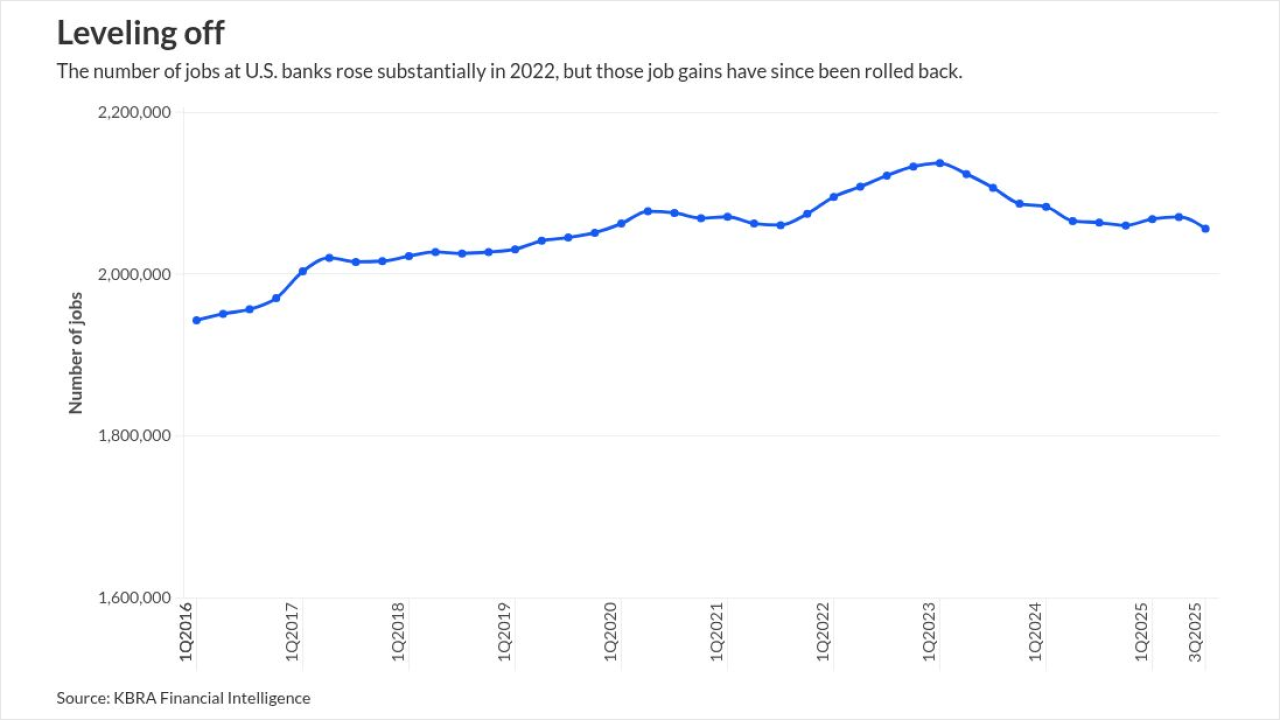The novel coronavirus has the potential to stop a controversial accounting standard before it really kicks in.
Bankers and lawmakers have been pressuring the Financial Accounting Standards Board for years to delay implementation of its Current Expected Credit Losses standard, or CECL, which would require banks and credit unions to project lifetime credit losses the day they originate a loan.
With the pandemic weaking havoc on lenders, Federal Deposit Insurance Corp. Chairman Jelena McWilliams entered the debate on Thursday, releasing a
McWilliams pressed for a moratorium for smaller banks and credit unions set to convert January 2023.
The letter also urged FASB to exclude any coronavirus-related loan modifications from being classified as troubled debt restructurings.

Pressure would mount on FASB if other regulatory agencies follow the FDIC's lead. That hasn't happened — yet.
The Federal Reserve declined to discuss the letter. The Office of the Comptroller of the Currency and the National Credit Union Administration did not immediately respond to a request for comment.
The letter could spur other regulators to weigh in, said Joe Stieven, chairman and CEO of Stieven Capital Advisorsand a vocal opponent of CECL.
"I think this is a game-changer," Stieven said. "It's so great to hear the chairman of the FDIC come out and say this."
A wide range of industry observers are waiting to see if those agencies intervene.
“It was probably never anticipated that the actual implementation of a completely new accounting estimate would come literally in the middle of a volatile period like this,” said Ariste Reno, a managing director at Menlo, Calif., consulting firm Protiviti.
“There’s really no way for banks to draw on prior experience of any type of pandemic,” Reno added. “This is just something that’s unheard of. If you think about implementing a significant accounting change in a period like this, it would be wise to make sure you have the incurred-loss estimates at hand. … There are a lot of complications around CECL that make it challenging to understand what each bank is doing and to compare across banks.”
The incurred-loss method, which most banks and credit unions continue to use, allows lenders to wait until there are signs of stress before accounting for a potential loss.
The American Bankers Association quickly seized on McWilliams’ intervention to make another push for a delay.
“We urge FASB to embrace the FDIC's recommendations as soon as possible so banks across the country can remain focused on helping customers, communities and the nation overcome this unprecedented challenge,” ABA President and CEO Rob Nichols said in a Thursday press release.
FASB agrees “with the need for close coordination with the [Securities and Exchange Commission] and banking regulators to address issues associated with loan modifications," said spokeswoman Christine Klimek. "We’re also continuing to work with financial institutions to understand their specific challenges in implementing the CECL standard."
Since proposing CECL in 2012, FASB has engaged with scores of critics, including bankers, lawmakers, trade groups, research analysts and other high-profile industry figures. FASB has consistently rejected calls to reconsider the standard.
Nichols and other critics argue that a deepening economic downturn is the wrong time to require lenders to implement an entirely new loan-loss methodology.
The Credit Union National Association has called for delaying CECL’s effective date for credit unions until at least January 2024.
“We’re in a period that’s unprecedented from a global perspective,” said Ryan Donovan, CUNA’s chief advocacy officer.
“Tell me when the crisis is going to end," Donovan added. "We really don’t think it makes sense to impose a new model for predicting credit loss in a time where there's such incredible uncertainty. One of the things we need now is for [credit unions] to be able to focus all their efforts on member service."
Nichols, likewise, said “it is critically important that banks of all sizes have all the tools they need to lend to creditworthy individuals and businesses with economic stress now here thanks to COVID-19.”





